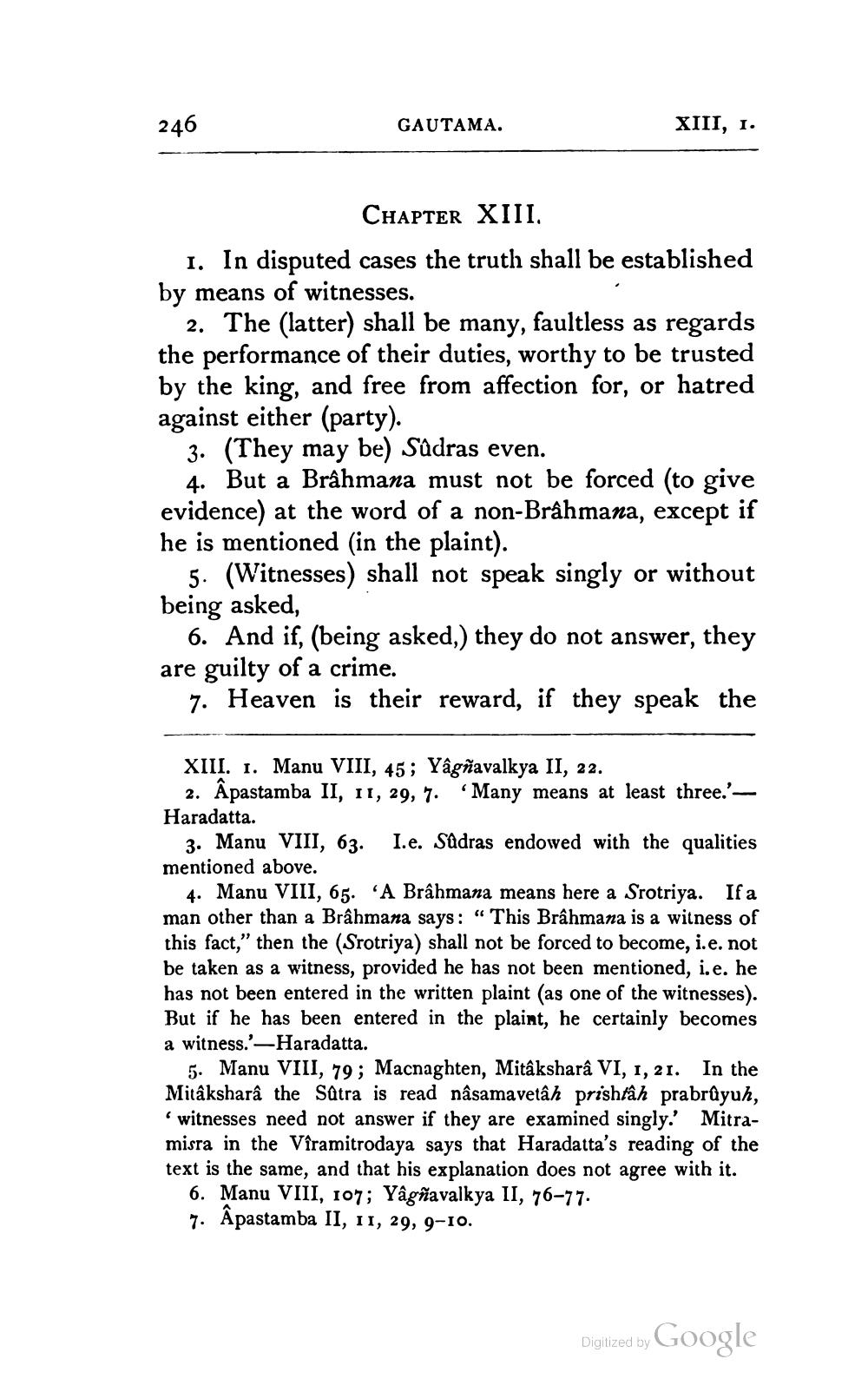________________
246
GAUTAMA.
XIII, 1.
CHAPTER XIII.
1. In disputed cases the truth shall be established by means of witnesses.
2. The (latter) shall be many, faultless as regards the performance of their duties, worthy to be trusted by the king, and free from affection for, or hatred against either (party).
3. (They may be) Sûdras even.
4. But a Brahmana must not be forced (to give evidence) at the word of a non-Brâhmana, except if he is mentioned (in the plaint).
5. (Witnesses) shall not speak singly or without being asked,
6. And if, (being asked,) they do not answer, they are guilty of a crime.
7. Heaven is their reward, if they speak the
XIII. 1. Manu VIII, 45; Yâgñavalkya II, 22.
2. Âpastamba II, 11, 29, 7. Many means at least three.'—
Haradatta.
3. Manu VIII, 63. I.e. Sudras endowed with the qualities
mentioned above.
4. Manu VIII, 65. 'A Brâhmana means here a Srotriya. If a man other than a Brâhmana says: "This Brâhmana is a witness of this fact," then the (Srotriya) shall not be forced to become, i.e. not be taken as a witness, provided he has not been mentioned, i.e. he has not been entered in the written plaint (as one of the witnesses). But if he has been entered in the plaint, he certainly becomes a witness.'-Haradatta.
5. Manu VIII, 79; Macnaghten, Mitâksharâ VI, 1, 21. In the Mitâksharâ the Sûtra is read nâsamavetâh prishtâh prabrûyuh, 'witnesses need not answer if they are examined singly.' Mitramisra in the Vîramitrodaya says that Haradatta's reading of the text is the same, and that his explanation does not agree with it. 6. Manu VIII, 107; Yâgñavalkya II, 76-77. 7. Âpastamba II, 11, 29, 9–10.
Digitized by
Google




